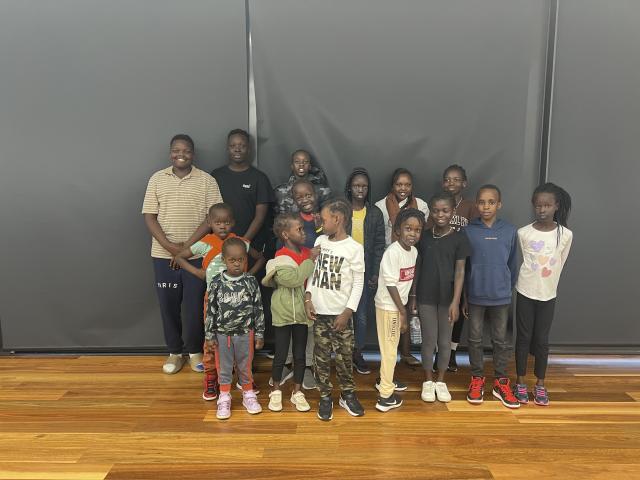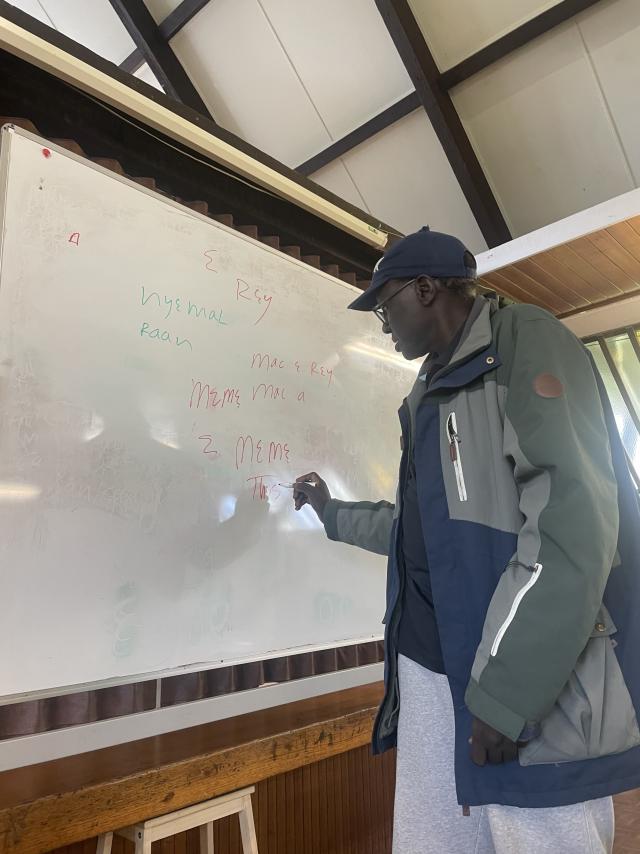by Nyibol Gatluak
The Nuer Language School (NLS) is a non-for-profit program founded from growing concerns that the younger generation is out of touch with its cultural roots.
South Sudanese elders are addressing this by promoting their native language through the literacy school.
The NLS, a non-for-profit program designed for South Sudanese youth in Melbourne’s south-east, offers teachings in one of the most common languages in South Sudan.
Thok Naath, commonly known as Nuer, translates into “the people’s language”.
Nuer has two million speakers in South Sudan and the western Ethiopian region of Gambella, with one-and-a-half million speakers.
NLS president David Tut Kuiy, a former treasurer of the Sudanese Community Council which was founded in 1988, also undertakes several committee roles.
He is NLS’s lead tutor, chairperson and secretary.
Mr Kuiy spent most of his childhood in Itang Refugee Camp in Gambella, Ethiopia.
He arrived in Australia in the 1980s and was one of the first South Sudanese people to settle in Australia and obtain Australian citizenship.
“There has always been a demand for the Nuer Language School from the community elders,” Mr Kuiy said.
“There was a lot of disengagement by the youth and a program like this enables us to unify our community.”
When Mr Kuiy first started the program, 60 students had registered but only two had showed up.
Despite his challenges, Mr Kuiy has always been determined to continue NLS. He restarted the program in January this year.
The program not only assists youth in reconnecting with their roots but also offers adult classes where they aim to improve their literacy skills, so they can read their mother tongue.
NLS operates across three campuses in Cranbourne, Dandenong and Doveton.
There are roughly 25 children and 10 adults that are consistent attendees every week.
“I am doing this so we can preserve the Nuer language because once you learn your language, it gives you an identity,” Mr Kuiy said.
Bichok Gony Guandong, a NLS volunteer tutor, echoed Mr Kuiy’s message.
Mr Guandong’s involvement in the program stems from his motivation to give young people the impetus to stay connected to their cultural roots.
This includes his own children who are all raised in Australia and have not visited his family overseas.
“One day, I want my children to be able to visit their relatives back home and have the ability to communicate with them — even if they struggle, I want them to at least be able to understand their language,” Mr Guandong said.
All academic staff at NLS believe that the program empowers the broader South Sudanese community.
Pal Deng Pur, a volunteer tutor at the Cranbourne campus, believes that expanding the program creates opportunities for others to learn the Nuer Language outside their tribal diaspora.
Mr Deng Pur is from the Gaatjaak clan of the Nuer tribe.
He was forced to flee his village as a teenager to Kakuma Refugee Camp in Kenya after the Civil War. He resettled again to Australia in 2003 on a humanitarian visa.
“We are doing volunteer work on weekends,” Mr Deng Pur said.
“The funding we get from the government only covers the renting of the buildings, but we are still struggling for school materials such as textbooks and stationery.”
As the program expands, NLS plans to purchase a bus to encourage students throughout Melbourne’s south-east to attend, particularly if they struggle with transport.
Mr Deng Pur said he aspired to see the program’s future growth.
“We would like to expand in the future, and open more centres because Nuer speakers are not just in Melbourne’s south-east but regional Victoria, including South Gippsland, Geelong and Ballarat,” he said.
All tutors emphasise the importance of maintaining cultural lineage through this program.
“At the end of the day, your language is the epitome of your identity. If you do not revive it then it will be lost forever,” said Mr Kuiy.
● Nyibol Gatluak is a student journalist at Monash University








